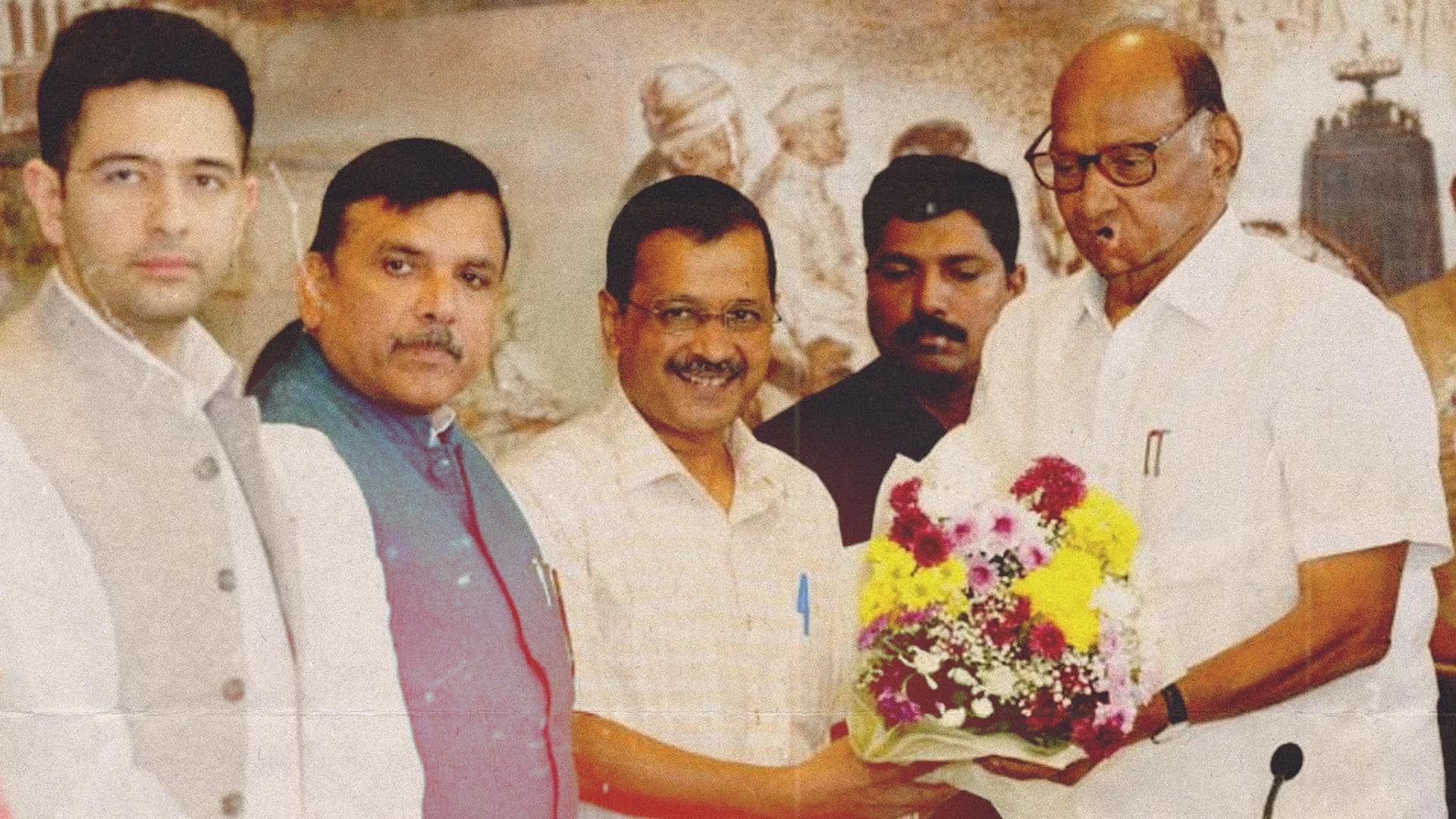
Delhi ordinance row: Pawar meets Kejriwal, says country in crisis
What's the story
After meeting Delhi Chief Minister and Aam Aadmi Party's (AAP) national convener Arvind Kejriwal in Mumbai on Thursday, Nationalist Congress Party (NCP) supremo Sharad Pawar said that there is a crisis in the country and it is not limited to Delhi.
Pawar assured support to the AAP government in its battle against the Bharatiya Janata Party (BJP)-led Centre's ordinance to control Delhi's administrative services.
Context
Why does this story matter?
Kejriwal is meeting opposition parties to rally support against the Centre's ordinance, which seeks to establish its absolute control over Delhi's bureaucracy.
Earlier, the Supreme Court ruled unanimously in favor of the AAP-led Delhi government, giving it power over Delhi's bureaucracy rather than the Centre.
The Centre's ordinance seeks to put bureaucrats above the CM.
Support
Thackeray, Mamata Banerjee, Nitish Kumar extended support to AAP
On Wednesday, Kejriwal, accompanied by Punjab CM Bhagwant Mann and other AAP leaders, won the support of Shiv Sena (UBT) chief Uddhav Thackeray against the Centre's ordinance.
Apart from West Bengal CM Mamata Banerjee, the Congress also extended support to the AAP on Tuesday.
Bihar CM Nitish Kumar and Deputy CM Tejashwi Yadav met Kejriwal on Sunday and assured him of support.
Twitter Post
Focus on bringing non-BJP parties together
Mumbai | There is a crisis in the country and it’s not an issue limited to Delhi. NCP and the people of Maharashtra will support Kejriwal. We will also talk to other leaders to support Kejriwal. We must focus on bringing all non-BJP parties together: NCP chief Sharad Pawar pic.twitter.com/ockoeZrozc
— ANI (@ANI) May 25, 2023
Ordinance
What is in the ordinance?
Last week, the Centre promulgated the ordinance that would amend the Government of National Capital Territory of Delhi Act, 1991 and allow the formation of a National Capital Civil Service Authority to oversee the appointments and transfers of Group-A officers from the DANICS cadre.
DANICS refers to Delhi, Andaman and Nicobar Islands, Lakshadweep, Daman and Diu, and Dadra and Nagar Haveli Civil Services.
Details
L-G oversaw bureaucracy before SC's verdict
The posting and transfer of all the officers of Delhi were under the Lieutenant-Governor's (L-G) executive control before the Supreme Court's May 11 verdict.
The ordinance, according to Kejriwal, demonstrates the Centre's lack of belief in the Supreme Court.
Notably, the Parliament has six months to ratify an ordinance after the Centre introduces a bill for its passage in both Houses.